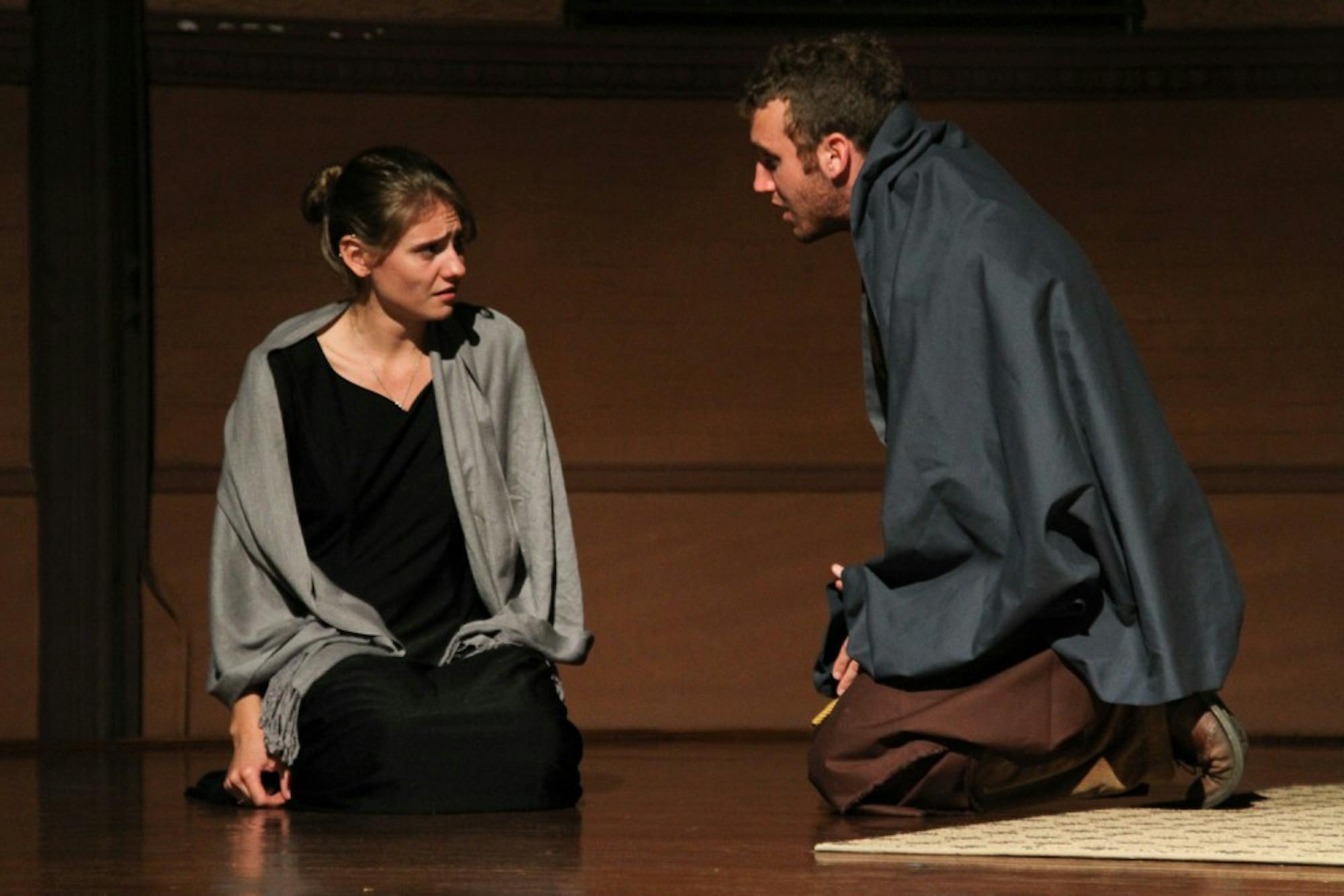The Dartmouth Rude Mechanicals left its audiences crying and laughing during its performance of William Shakespeare’s “The Winter’s Tale” in Bentley Theater on Friday and Saturday, marking a promising beginning for the new year for the group.
Accusations, betrayal, love and redemption can all be found in “The Winter’s Tale,” which tells the story of Leontes, the King of Sicilia (played by Patton Lowenstein ’14), who meets up with his childhood friend Polixenes, the King of Bohemia (Nate Grice ’16). Polixenes longs to return to Bohemia, but Leontes convinces him to stay with the help of his wife Hermione (Camille Van Putten ’14). As he becomes increasingly suspicious, Leontes puts a tragic cycle in motion by accusing Hermione of infidelity and attempting to kill Polixenes.
The Rude Mechanicals performed the famous dramedy with an enthusiasm and energy that made it difficult for the audience to keep their eyes away from the action unfolding on stage. Even with minimal costumes and props, the troupe was able to create its own world. The resounding sound of laughter in the theater only confirmed the audience’s investment in this fantastical world.
“I honestly think that ‘The Winter’s Tale’ is such an odd play, so I thought they did a really good job,” Sara Trautz ’15 said. “It can also be very boring, but it was great. We were laughing nearly the whole time.”
The choice of “The Winter’s Tale” as the Mechanicals’ first production of the year was not a spontaneous one. Members took several weeks to nominate different Shakespeare plays, and “The Winter’s Tale” won the vote by a wide margin. In fact, it had been a strong candidate last spring when the Rude Mechanicals performed the tragic romance of “Romeo and Juliet.”
Like any other Rude Mechanicals production, “The Winter’s Tale” was cut down considerably from its original length. Lowenstein stripped the famous play to its barest components because few students would want to see a play that lasted over three hours. The members also tried to make the scenes more interesting for their audience, member Reed Sturtevant ‘16 said.
“We take any opportunity we can to add fun characterization to what otherwise might be a straightforward scene,” Sturtevant said.
The Rude Mechanicals secured Bentley after successfully applying for a “Your Space” slot through the theater department. While the group used some costumes from the theater department’s storages, several outfits were taken from the personal wardrobes of the members and a shared box of random costume pieces.
“I can’t even believe that it was entirely student-run,” Caitlin Veator ’14 said. “They did such a good job with costumes and adapting the play to be relevant in a modern context while still keeping really true to Shakespeare. It was a really great rendition.”
The Rude Mechanicals created an efficient schedule that helped them prepare “The Winter’s Tale” in only a few weeks. Only performers in certain scenes would go to rehearsals during some weeks, during which artistic director Luke Katler ’15 blocked and worked on scenes. Long rehearsals were held on the weekend so that fellow members could provide feedback.
The Rude Mechanicals continue to be driven by its love for Shakespeare’s work. Despite the large time commitment of planning and executing a major performance, the members are willing to entertain their fellow students through Shakespeare’s universal stories.
“Shakespeare is one of the greatest users of words in the English language, and the fact that we’re still putting on shows he made 400 years ago is really unique,” Sturtevant said. “He wrote really true, very human stories where the characters are people. There is no direct barrier of communication between people and the audience. It’s a delightful experience, and it’s what I think the performing arts are really about.”




